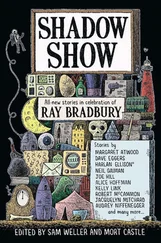“We’d like to ask you a few questions about Louise Valker,” said Djanali, producing her ID card. “We’re from the crime unit.” The woman nodded, poker-faced. “Are you the owner of this establishment?”
“Yes. My name is Irma Fletcher.” She looked at the doorway she’d just come through. “Perhaps we could go to my office.”
Once there, they sat around an oblong table with a glass surface. There were several glossy magazines strewn over it. All Halders could see on the covers were female heads; he closed his eyes, then looked at the walls, where he found a number of black-and-white fashion posters depicting women in clothes that had been torn to shreds. They looked as if they’d been splattered with blood. One woman was lying on the floor, her eyes staring. In the background was a man in an overcoat and hat carrying a machine gun. Halders looked at the outline and guessed that it was a dummy Uzi.
“What the hell is that?” said Halders, gesturing toward the wall.
“What do you mean?”
“What’s that? Have you been swiping pictures from the forensic lab? Photos from a murder scene?”
The woman looked at the wall and started to blush. She’ll soon be so hot that her makeup will melt, thought Djanali. “Oh, I thought we’d taken them down. I suppose it’s been overlooked. They’ve been hanging there for a while and then, well, after a while people only see the wall.” Her face was still scarlet. “But they are very unsuitable.”
“What are they?” Halders insisted.
“Er… well… they are a series of new fashion photographs.” She looked at the wall again. “We’ve had quite a few like that this autumn.”
“Is this the fashion for the new millennium?” Djanali wondered.
‘A rush of blood to the head,“ Halders said. ”Brave New World.“
Irma Fletcher looked as if she were shouldering the shame of the whole planet. She leaped to her feet, pulled down all three of the posters, crumpled them up, and stuffed them into a wastepaper basket next to the door. Then she sat down again.
“As far as we can make out, Louise Valker hasn’t been working here for the last couple of months?” Aneta Djanali was checking her notes.
“No. She worked sort of seasonally. I mean, she came to help out when we needed her. No regular pattern to it, in fact.”
“It sounds a bit shady.”
“That’s what I meant when I said ‘no regular pattern.’ But that seemed to be how she wanted it.”
“That’s how she wanted it?”
“I offered her a part-time job with regular hours a year or so ago, but she turned it down.”
“Turned it down? That must be unusual.”
Irma Fletcher shrugged.
“She didn’t elaborate, and I didn’t ask her.”
“Was she any good?”
“Yes. She was competent enough. Maybe not too keen to learn anything new. But, there again, I suppose she wasn’t exactly a youngster anymore. I don’t know. And I’d rather not speculate.”
“Did she socialize with any of the other hairdressers here?”
“Not as far as I know. Feel free to ask them, but I don’t think so.”
“So she kept to herself.”
“We all work hard here, and you could say that we all keep to ourselves. Some of them have their own chairs, and they’re running their own business under my umbrella. And then everybody goes home when we close up shop.”
“Did you get to know her at all?”
“No, not really. We once had a coffee together at the café next door-that was when I offered her the job. I think that was the only time.”
“Can you tell us anything about her? What she was like?”
“She liked men.”
“Excuse me?”
“I had the impression that she was very interested in men. A bit of a flirt, you might say. That’s something you tend to notice.”
“Christian was a good salesman. What a tragedy.”
It was afternoon. They were sitting in an office with a view over Gothenburg-apart from Halders, who preferred to stand.
Comec’s open-plan office was on the twelfth floor. People were leaning over computers and conducting conversations. They’re talking over the computers’ heads, thought Halders. I’d better stop thinking along those lines.
Comec’s head of sales and personnel was sitting in front of them, looking serious at one moment and cheerful the next. He keeps forgetting himself, Djanali thought.
It was early afternoon on Friday, and all the men were casually dressed in checked shirts, T-shirts under comfortable tweed, polo shirts. The few women Halders could see were dressed normally. Maybe the occasional one in jeans. The sales boss was dressed in a black T-shirt under a black single-breasted jacket, boots, black jeans.
Casual Friday, Djanali thought. When Comec becomes Comic.
“In what way was he good?” Halders asked.
“Knew what he was doing. Conscientious. Got results.”
“Why didn’t you miss him, then?”
“Excuse me?”
“He was absent for ten days. Why didn’t you miss him?”
“In the first place that’s not how we work here,” said the man, crossing his legs. “We don’t keep a daily check on our workforce in that way. They are highly qualified people who take care of themselves.”
Highly qualified, my ass, Halders thought. The only thing…
“And in the second place, Christian had taken a week’s vacation around that time. I didn’t know about it until later.”
“But that was only a week.”
“As I said, our staff take care of themselves. Perhaps he hadn’t booked anything for the days before and after his vacation. I haven’t checked that. Yet.” He looked at Halders, perhaps somewhat arro gantly. Halders wasn’t sure, and couldn’t be bothered to find out.
“Did you know Christian?”
“Excuse me?”
“Did you know him socially? Did you mix in your private lives?”
“No. Maybe the occasional beer with the guys,” he said, and looked at Djanali. “With the team, I mean.”
“Okay. Anything else?” asked Halders.
“What do you mean?”
“Can you tell us anything about his personality? Did he ever talk about his friends? Or his wife? Anything at all apart from Comec?”
“Only the usual.”
“What’s the usual?” Djanali asked.
“You know, girls, that sort of thing.”
They took the number-four tram to Hagen. Angela had been surprised when he suggested it.
“I thought you never went by tram.”
“I am tonight.”
“Why?”
What could he say? That he wanted to see the town in the same way as most people see it? Huh. He simply didn’t want to take a taxi, or to drive himself. He also wanted to walk a bit.
“I feel like walking. Let’s walk as far as the Avenue and take the tram from there. Are you ready?”
“Surely you can see that I’m not ready,” she said from the bathroom.
“Okay. I’ll wait.”
She brushed her hair and put a bit of gloss on her lips. She looked in the mirror and opened her eyes wide. The light in the bathroom wasn’t good. She had bags under her eyes in there. They weren’t there when she looked in a mirror at the hospital. She made a face at the mirror. It’s not the light. You want a house. Your apartment days should be over. A house by the sea.
Winter had gone to the living room and was standing by the window. Coltrane was playing with Red Garland. “Soft Lights and Sweet Music.”
The city was wrapped in gauze. Soft light shone out through the bandages. Lights blinked on top of high buildings. Gothenburg had acquired a different topography in recent years. It was reaching up to the sky. Airplanes cruised between its arms on their way down.
He looked down. Down there. Somewhere. How many times have I stood here and thought: the answer is down there, the solution. The man I’m going to meet is down there somewhere, perhaps he’s walking past at this very moment. He’s walking through the park. Now he’s passing the obelisk. I’ve done that as well. I’ve kept meeting him.
Читать дальше












